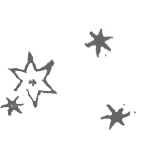Women and Science
Featured exhibit items for women and science.
Exhibit Items
| 3 |
Medical Remedies Hildegard of Bingen, (1533) Free medical care from the medieval Abbess who composed music, rebuked rulers, saw visions and wrote many books: In the Middle Ages, convents were places where anyone might seek free health care. |
 |
| 7 |
Notes Lovelace, Ada (1843) These notes comprise one of the most important papers in the history of computing. Lovelace explained how Babbage’s “analytical engine,” if constructed, would amount to a programmable computer rather than merely a calculator. |
 |
| 7 |
Wonder Chambers of Nature Vincent, Levinus (1706-1715) Levinus Vincent, a wealthy Dutch merchant with ties to the East Indies, created a spectacular natural history museum in Haarlem. Visiting dignitaries admired his museum, including Peter the Great and King Charles III of Spain. |
|
| 8 |
The Caterpillar Garden Merian, Maria Sybilla (1717) Merian, an artist and naturalist, studied the relationships between flowers and insects; she also bred her own insects for this purpose. She was particularly interested in metamorphosis. |
|
| 9 |
The Generous Muse of the Heavens Cunitz, Maria (1650) Prior to Newton, fewer than half a dozen astronomers accepted Kepler’s three laws. Galileo was typical in ignoring everything Kepler did. Yet this beautiful book is an exception: it clearly demonstrated that Kepler’s laws were more accurate than anything that had come before. |
|
| 11 |
General History of China, vol. 1 du Halde, J.B. (1741) Du Halde lived in China for nearly 30 years. This work recounts the story of Candida Xu, who collaborated with the Jesuit astronomers as had her grandfather, Xu Guangki. For a foldout map of China, du Halde drew upon the Kangxi atlases of 1717 and 1721. |
 |
| 12 |
Aristotle’s Masterpiece , (1788) Family medical handbook: Works entitled “Aristotle’s Masterpiece” were family health guides, written in the vernacular, offering practical remedies and advice for life cycle care, sexual relations, prenatal care, birthing and midwifery, hygiene and health. |
 |
| 15 |
Conversations on the Plurality of Worlds Fontenelle, (1728) In this dramatic and entertaining dialogue, Fontenelle explained Cartesian philosophy and cosmology and argued for the existence of life on other worlds. He justified a popular writing style by encouraging women and men to engage in pleasant evening conversation together on scientific topics. |
|
| 16 |
Army Sanitary Administration and its Reform under the late Lord Herbert Nightingale, Florence (1862) Organization of nursing as a profession: Florence Nightingale championed social reform and the organization of nursing as a profession. |





